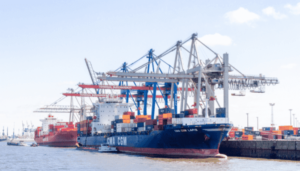Has your cargo from overseas been stuck at the customs because the documentation or the legalities was incomplete or done up incorrectly?

Importing goods is a specialized field that can often be complicated. Documentation and compliance with legal formalities play a very important role in the timely sailing of goods from the port of origin and their clearance at the port of discharge.
It is the collective responsibility of the exporter, the importer, or an appointed third party to ensure that all rules and regulations have been followed while exporting the goods and receiving them at the destination port.
Documentation requirements for shipping vary between countries and each of these parties needs to be alert to changes in requirements.
An Importer of Record (IOR) is usually an organization comprising of legal and logistics experts in the field of import of cargo from other countries.
They are consultants who can advise the importer on the different customs rules and regulations that have to be followed to import goods and to get them cleared by the customs. IOR also arrange the logistics of storage and transport for delivery to the buyer.
In a country like India, most goods that are not banned from import, according to government policies and the law, can be imported under the Open General License (OGL). However, there are goods that may have other licensing requirements that require extra documentation for their import. This is where an importer of record can help importers.
Normally, IOR is an expert in specialized goods and each importer of record may cater to a specific industry or in some cases industries.
Such goods include special materials, food items, certain pharmaceutical drugs, IT equipment, etc. In certain cases, licensed customs brokers also act as IOR for the import of goods.
Role of an Importer of Record
The importer of the record plays an important role in controlling the import of banned substances and materials as well as in the payment of the correct customs duties – following the right tariff, and other fees to the government. As such, they are responsible for the import and payment of all related duties and fees on behalf of their customers.
Read Also: Grimaldi Foundation, World Maritime University Ink Sponsorship Agreement
An IOR gets the right documentation from the exporter so that the goods can be imported to and cleared at the destination country.
They verify the accuracy of such records and then apply for the necessary import permit. The customs clearance is then arranged by submitting all the necessary paperwork and payment of the correct duties and fees.
The IOR identifies the merchandise correctly and applies the right customs duty and taxes for payment. In most cases, the ownership of goods is transferred temporarily to the importer of record. Thus, the importer of record assumes the responsibility of the goods until it is cleared by the customs and handed over to the actual owner at an agreed location.
The importer of record may also have the responsibility of arranging the logistics of the goods for delivery to the buyer.
Kindly like us on Facebook
















Discussion about this post